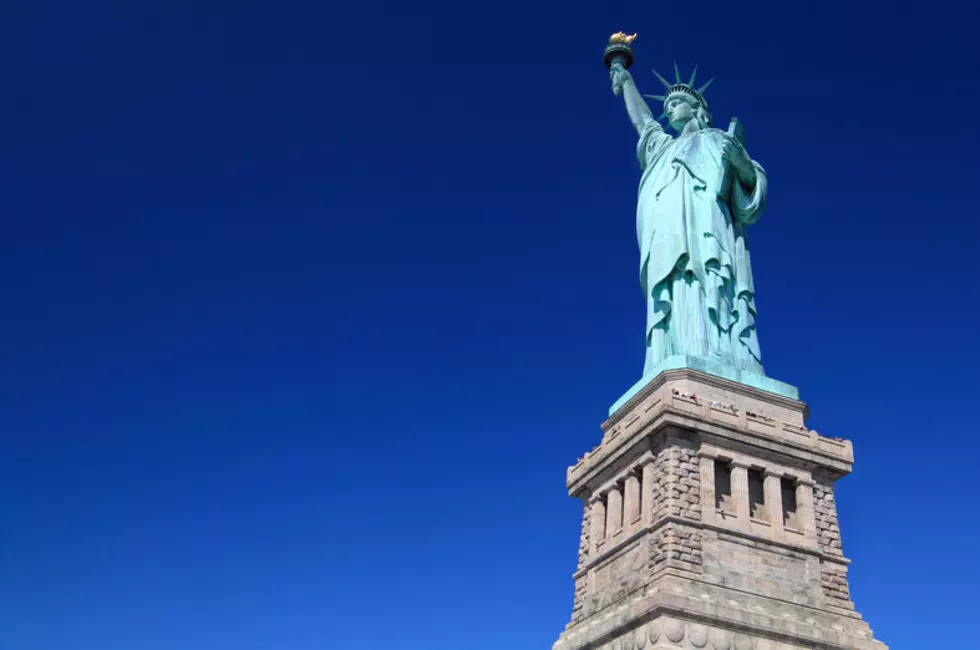
7 Facts About Black Women Who Changed The World
During this time of year, it's important to try and learn new information about the African Americans that made the history we celebrate. Each year I try and find the stories of people I never heard of and sure their stories. In doing so, I learned I got a lot more to learn about Black History. I also learned there are hundreds and hundreds of unsung heroes that helped to shape and change the world we live in. Today, we celebrate 7 Black heroines that made American history
Below are the biographies of 7 remarkable Black women who went on to become pioneers in cosmetology, medicine, space, philanthropy, civil rights, and much more. They were fearless and excelled in their fields, kicked down the boundaries, and emblazoned trails so that others could follow in their footsteps. Meet...
Marjorie Joyner
Inventor, educator, businesswoman, hair care entrepreneur, philanthropist, and activist. Joyner is noted for revolutionizing hair care for Black women. The granddaughter of a slave she became the first African-American woman to create and patent the Permanent Waving Machine.
Astronaut Dr. Mae Jemison
American engineer, physician, and former NASA astronaut who became the first black woman to travel into space. Jemison was a mission specialist aboard the Space Shuttle Endeavour.
Dr. Valerie L. Thomas
Dr. Thomas developed the first 3D optical illusion device. Her inspiration came after attending an exhibit on illusion, featuring a lightbulb and concave mirrors that fooled people into believing they're seeing one thing when it's another. She experimented with flat and concave mirrors until she created a that made images on a screen appear three-dimensional. her invention: the illusion transmitter. In October 1980, Dr. Thomas obtained the patent for her invention, which NASA continues to use to this day.
Maya Angelou
Maya Angelou was a poet, screenwriter, essayist, director, producer, and civil rights activist. Her screenplay Georgia, Georgia, made history becoming the first original script by a Black woman to be produced. The iconic screenplay also earned her countless awards and a variety of honorary degrees. Her resilience and determination would serve her well in the fight for civil rights.
Together she and Dr. Martin Luther King Jr. co-organized the Cabaret for Freedom, to raise funds for the Southern Christian Leadership Conference. As the two worked to advance the Civil Rights Movement, their fellowship grew into a lifelong friendship. The day Angelou celebrated her 40th birthday, was the same day that Dr. King was assassinated. She would never celebrate her birthday again.
Ida B. Wells
investigative journalist, educator, and early leader in the civil rights movement. She was one of the founders of the National Association for the Advancement of Colored People led the campaign against lynching, was born enslaved in 1862. "Good Homes, Low Rents," brochure and preliminary application for apartments in Ida B. Wells Homes, a public housing project built in 1939 on the South Side of Chicago.
Ella Baker
The Mother of the Civil Rights Movement. The Ella Baker Center for Human Rights is named after a brilliant, Black hero of the civil rights Freedom Movement who inspired and guided emerging leaders.
Henrietta Lacks
At age, 31the mother of five was diagnosed with an aggressive form of cervical cancer and underwent treatment at John Hopkins Hospital. Renowned gynecologist, Dr. Howard Jones was head of the hospital cancer research program but had problems keeping human cancer cells alive long enough to conduct studies. After taking a biopsy from Lacks tumor, researchers were astonished to discover her cancers cell not only grew but multiplied. They would also be the first human cells to reproduce outside the body.
Named in her honor, the "HeLa" cells Henrietta's legacy continues to impact medical treatments and research to this day. Sadly, her family was never notified or compensated when her cells were harvested prior to her death. Yet her cells produced millions of dollars and saved thousands of lives. "HeLa" cells have made medical history leading to the polio vaccine and various cancer treatments, AIDS research, Vitro fertilization, the COVID-19 vaccine, and more.

